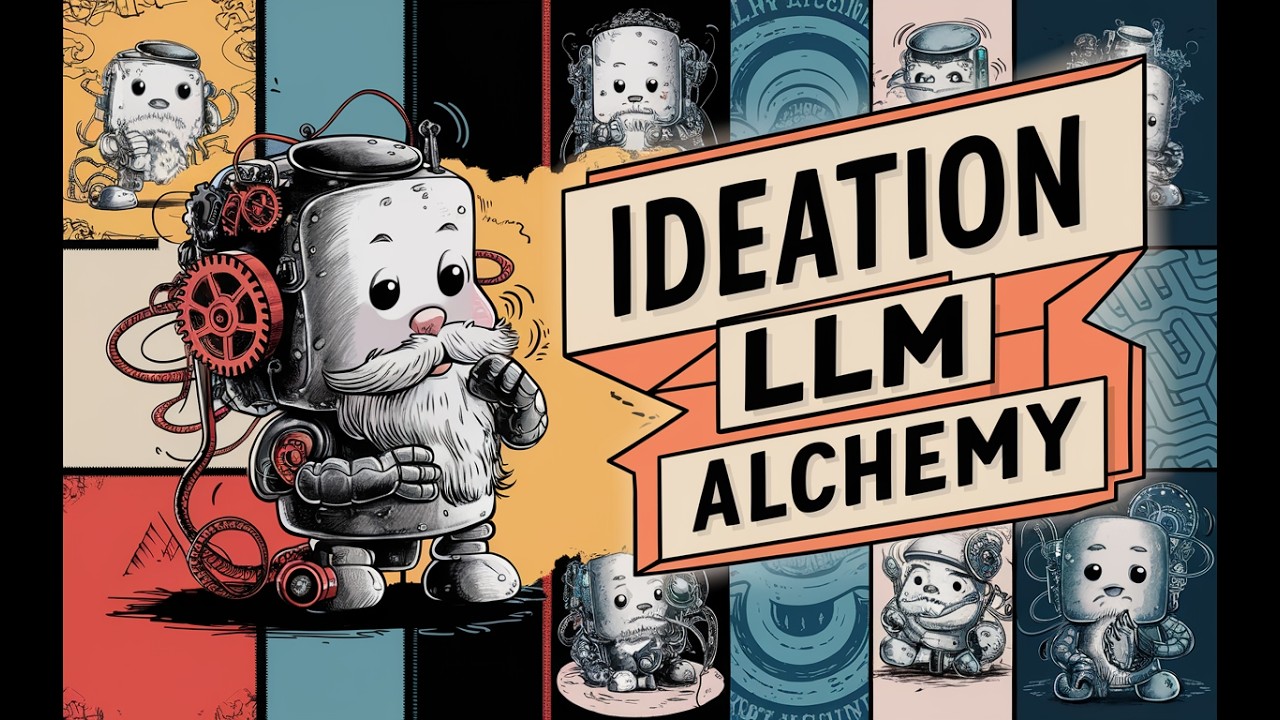The video discusses a structured approach to idea generation and evaluation using GPT-4, emphasizing the importance of avoiding generic ideas through the use of JSON mode and structured outputs. It highlights a critical evaluation process that balances emotional responses and rational analysis, while providing examples of practical applications for LLMs and inviting viewers to access additional resources on Patreon.
In the video, the presenter discusses an idea generation and evaluation process using large language models (LLMs), specifically focusing on GPT-4. The complexity of generating and evaluating ideas is highlighted, particularly when it comes to creating unique applications for LLMs. The presenter emphasizes the challenges of avoiding generic and esoteric ideas, which can often arise when prompting LLMs. To tackle these issues, the video introduces a structured approach using JSON mode and structured outputs, which are deemed more effective for both idea generation and evaluation.
The presenter outlines the evaluation structure, which is inspired by human decision-making processes. The goal is to generate distinct, novel ideas that are practical and impactful. The video provides examples of potential use cases for LLM applications, such as contract management, financial market analysis, and personalized education. The presenter explains that the system message is crucial in guiding the LLM to produce ideas that are not only unique but also relevant to everyday business solutions.
A significant portion of the video is dedicated to the review process, where the presenter discusses how LLMs tend to have an overly optimistic outlook. To counter this, the evaluation process is designed to incorporate a more critical perspective. The presenter shares insights on how to prompt the LLM to simulate a naturalistic decision-making process, allowing it to provide instinctive reactions and logical reasoning for each generated idea. This approach aims to create a more balanced evaluation that considers both emotional responses and rational analysis.
The video also touches on the importance of structured outputs, which help ensure that the generated ideas and evaluations adhere to a specific schema. The presenter explains how using structured outputs can prevent errors that may arise from complex JSON structures. By defining classes for ideas and their evaluations, the process becomes more manageable and reliable. The presenter demonstrates how to format the generated ideas and evaluations in a clear and organized manner, making it easier to analyze the results.
Finally, the presenter invites viewers to access the code files and additional resources available on their Patreon page. They highlight the benefits of becoming a patron, including access to various coding courses and one-on-one consultations. The video concludes with a reminder of the upcoming live coding meetings and encourages viewers to engage with the content and explore the potential of LLMs in generating and evaluating innovative ideas.
